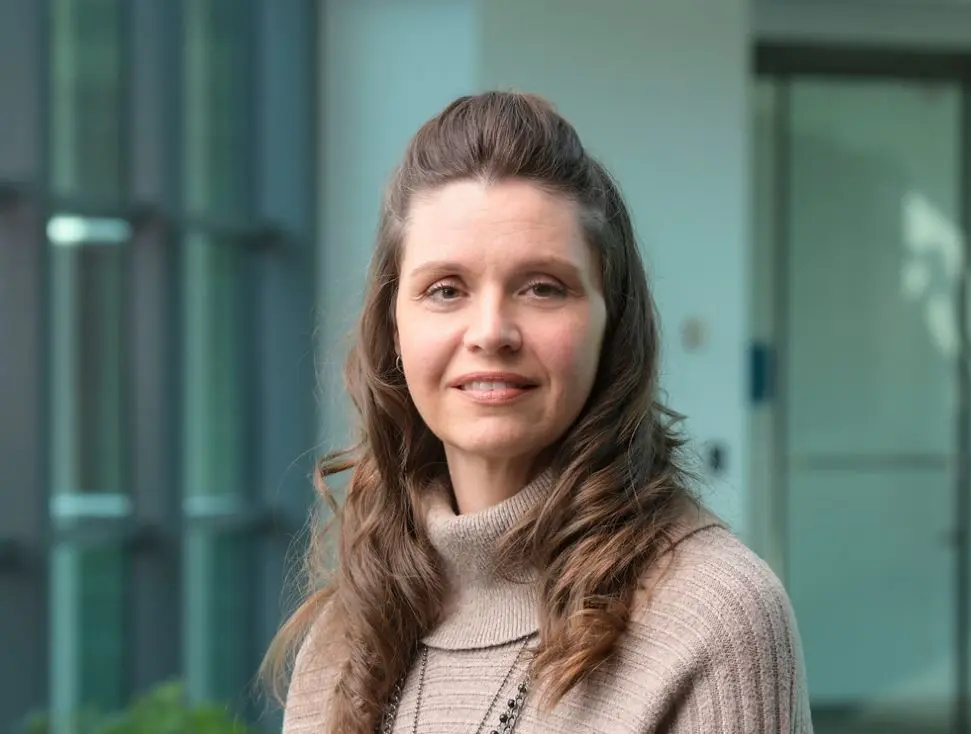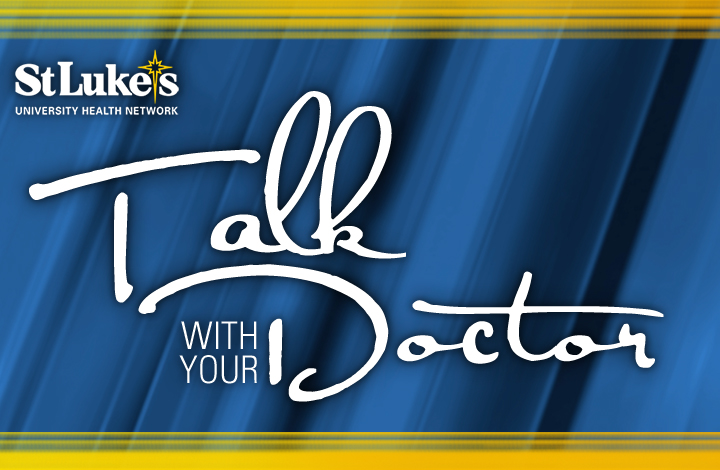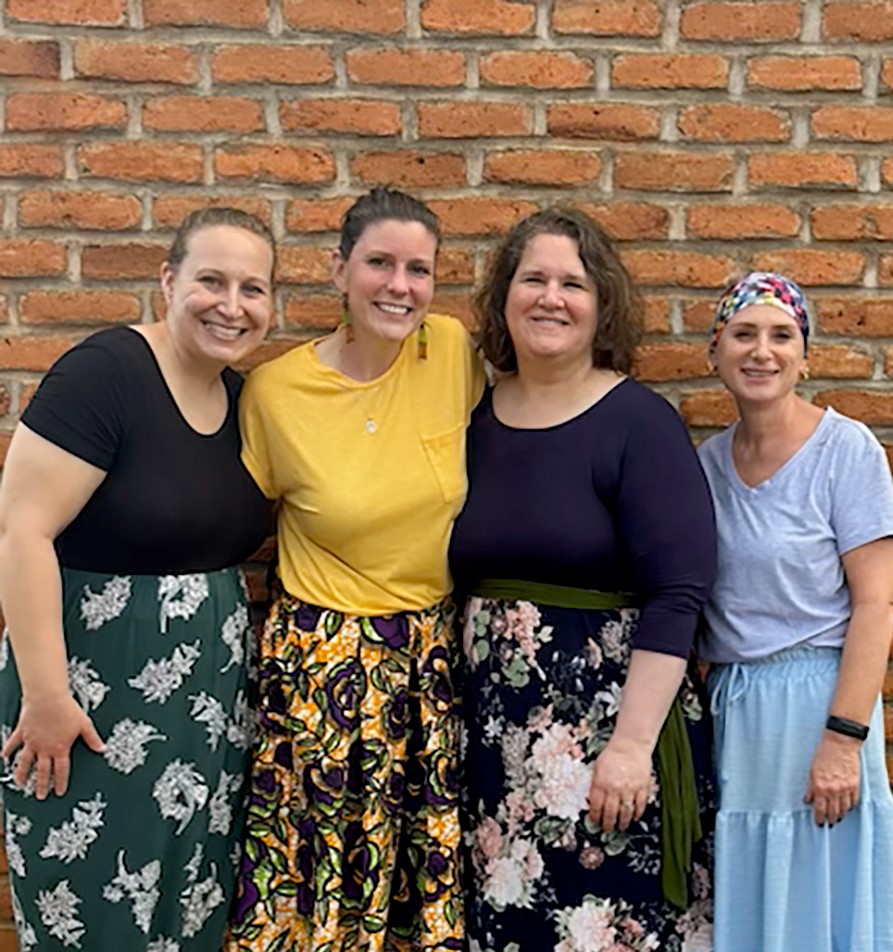DNA Answers Helps Woman Understand and Address Cancer Risks
November 14, 2024

When Tina Bollinger of Slatington decided to have her blood drawn as part of St. Luke’s community health research program DNA Answers, she mentally prepared herself for what she might find out.
Even so, the test results took the 49-year-old St. Luke’s Physician’s Group director by surprise.
“I was flagged for a BRCA1 gene mutation, putting me at a high risk for breast and GYN [ovarian] cancer,” she said. Though not the news she wanted to hear, she said she is grateful to have been made aware.
In December, St. Luke’s launched the community health research study, DNA Answers, in partnership with Helix, a California-based leading population genomics company. One of the goals of this joint initiative is to offer, at no cost to the participants, the opportunity to participate in research and have access to the latest screening techniques that support what is referred to as precision medicine.
“Through insights gleaned from patients’ unique genetic make-up, precision medicine enables ‘individually tailored’ health care – from early disease diagnosis to individualized treatment,” said St. Luke’s Senior Vice President of Clinical Integration, Dr. Aldo Carmona.
The initial goal of DNA Answers is to enroll 100,000 participants over four years.
“The individuals who participate in the research study will be provided, at no cost, with important health information about their potential risks for serious health conditions such as a certain type of cardiovascular disease and different types of cancer,” explained Dr. Christopher Chapman, the Principal Investigator for DNA Answers, who also serves as Chairman of the Department of Pathology and Laboratory Medicine and Medical Director for Precision Medicine at St. Luke’s.
With this knowledge, patients such as Bollinger are empowered to make proactive decisions with their healthcare providers to potentially delay or even prevent related disease and illness from occurring later in life.
“According to the National Comprehensive Cancer Network® (NCCN®), it is estimated that women with a BRCA1 mutation have a 60-72% lifetime risk for breast cancer,” explained Corrine Fillman, a St. Luke’s Genetic Counselor. “Women also have a 39-58% lifetime risk for ovarian cancer, while both women and men have an equal to or less than 5% lifetime risk for pancreatic cancer (NCCN, 2024). Additionally, men have an increased risk for prostate and male breast cancer (NCCN, 2024).”
Upon learning her test results, Bollinger spoke with Fillman, a genetic counselor on St. Luke’s Precision Medicine Team. During this appointment, they reviewed the cancer risks, screening and medical management recommendations associated with a BRCA1 mutation. Together, they developed a plan for Bollinger and referred her to the appropriate specialists to discuss breast cancer surveillance and preventive surgery.
“She was very good at explaining the many details of the results, which could be overwhelming,” Bollinger said of her genetic counselor.
NCCN Clinical Practice Guidelines in Oncology (NCCN Guidelines®) provides screening and medical management options for individuals with BRCA1 mutations. For breast cancer screening, such individuals may begin screening at the age of 25 with an annual breast MRI (NCCN Guidelines®, 2024). Starting at the age of 30, individuals may have both a mammogram and MRI annually (NCCN Guidelines, 2024). Women may also elect to have their ovaries and fallopian tubes removed before developing cancer (NCCN Guidelines, 2024).
Although her family has a history of breast cancer, Bollinger’s mammograms have always been negative, and her Pap smears and gynecologic exams normal. After consulting with a gynecologic oncologist, however, she has decided to undergo a risk-reducing surgery to remove her ovaries and fallopian tubes. Studies estimate that this surgical procedure will reduce the possibility of developing ovarian or fallopian tube cancer by over 80% (Finch et al., 2014).
Additionally, Bollinger’s plan to prevent breast cancer includes having regular “watchful waiting” breast ultrasounds or breast MRIs, alternating every six months to monitor her breast health. Should there be abnormal findings in either diagnostic test, she and her health care provider will explore further treatment options.
Identifying a BRCA1 mutation can be helpful for family members, as well. Bollinger and her genetic counselor discussed the 50% chance that first-degree relatives (parents, siblings, and children) inherit this mutation. Her daughter, age 30, and son, age 24, may also seek genetic testing to learn their risk.
Bollinger said that she is sharing her story to encourage her family, coworkers, and others throughout the community to enroll in DNA Answers as “an ounce of prevention,” and that she is thankful St. Luke’s has made this program available at no cost to participants.
“I absolutely have no regrets that I got tested, and I hope people across the Lehigh Valley and in New Jersey will take advantage of this service that will save lives.” Read More NewsLatest News


April 17, 2025
SLUHN Employee Competes in Boston Marathon on Monday

April 16, 2025